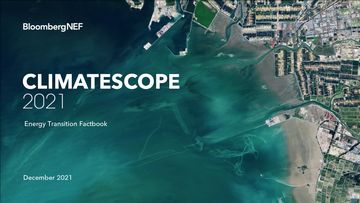El Salvador
With a cumulative score of 1.68, El Salvador ranks number 32 among emerging markets and number 61 in the global ranking.
- Emerging markets
- Americas
1.82 / 5
Power score
1.37 / 5
Transport score
Buildings score
Only 56 markets (28 emerging markets) are scored on the Buildings sector. See the full list on the methodology page.
Low-carbon strategy
Net-zero goal and strategy
El Salvador has neither a net-zero emissions goal nor or a long-term decarbonization strategy.
Nationally Determined Contributions (NDC)
El Salvador's 2017 ‘nationally determined contribution’ (NDC) – meaning its plan to help achieve the goals of the Paris Agreement – set a target to reduce greenhouse gas emissions by 46% by 2025 versus a business-as-usual scenario. However, the NDC lacks specific measures to help achieve this goal.
Fossil fuel phase-out policy
El Salvador does not have a fossil fuel phase-out policy.
Power
Power policy
El Salvador’s government is focused on diversifying its power matrix and cutting its dependence on oil by adding renewable energy capacity. The country has held three auctions since 2013, contracting 285 megawatts (MW) of renewable capacity, although there have been no new auctions since 2018.
The country offers income and import tax exemptions for clean energy projects and guarantees priority dispatch to clean electricity.
Power policies
Power prices and costs
Commercial, residential, industrial, and wholesale electricity prices in El Salvador slipped by an average of 20% between 2015 and 2016. However, dry conditions in 2016 reduced reservoir levels, hurt hydropower production, and led to fossil fuel generation ramping up. Power prices rose as a result.
In 2020, commercial prices dipped slightly to $172.50 per megawatt-hour (MWh). Wholesale and industrial prices fell 35% and 8%, respectively, over the same period, while residential prices jumped 11%.
Power market
El Salvador had 2.2 gigawatts (GW) of installed generation capacity in 2020. Oil and diesel constitute the single largest source, accounting for 33% of the total, followed by large hydro at 24%. Among renewables, solar PV dominates, with 460MW of installed capacity by 2020 (20%), compared to 104MW in 2017. PV is followed by biomass and geothermal, with 13% (294MW) and 9% (204MW), respectively.
El Salvador’s power market has been unbundled and generation is open to private operators. The country is part of the Central American Electrical Interconnected System and is connected to Guatemala and Honduras by 286 kilometers of transmission lines.
Installed Capacity (in MW)
Electricity Generation (in GWh)
Utility privatisation
Which segments of the power sector are open to private participation?
Wholesale power market
Does the country have a wholesale power market?
Doing business and barriers
El Salvador’s clean energy sector attracted $1.1 billion in investment from 2010-2019. Over half that was directed to PV plants, which received $663 million, followed by $261 million for biomass and waste projects. Largely due to successful recent clean energy auctions, over 71% of investment was deployed across 2016-2019. Wind projects attracted $85 million of investment in 2019.
El Salvador’s renewables boom is set to continue with more project completions in the next two years. Still, the country remains highly dependent on fossil fuels and hydro, exposing the power market to price spikes during droughts and periods of high oil prices. Investment in renewables is seen as a path to reducing these impacts.
El Salvador has seen little economic growth since 2000, and its government is deeply indebted. Power demand has fallen from 1,093MW in 2016 to 1,010MW in 2020. High crime levels add to the cost of doing business. Moreover, El Salvador has high exposure to natural disasters, which increases operating risk.
Currency of PPAs
Are PPAs signed in or indexed to U.S. Dollars or Euro?
Bilateral power contracts
Can a C&I (Commercial and Industrial) customer sign a long-term contract (PPA) for clean energy?
Fossil fuel subsidies
Does the government influence the wholesale price of fossil fuel (used by thermal power plants) down through subsidies?
Bilateral power contracts
Can a C&I (Commercial and Industrial) customer sign a long-term contract (PPA) for clean energy?
Bilateral power contracts
Can a C&I (Commercial and Industrial) customer sign a long-term contract (PPA) for clean energy?
Fossil fuel taxes
Does the government influence the wholesale price of fossil fuel (used by thermal power plants) up through taxes?
Transport
EV market
El Salvador has an immature electric vehicle (EV) market, with only two registered battery electric vehicles in the country in 2020. It has no specific target for EVs.
The first EV charging station was installed in El Salvador in 2019. AES El Salvador – a subsidiary of U.S. utility AES – and Grupo NVS plan to further develop five more stations.
EV policy
El Salvador offers tax incentives to encourage EV adoption. Both electric and hybrid vehicles are exempt from customs duty and the 13% VAT rate, and there is a 25% reduction in customs duty for two- and three-wheelers. For hybrid vehicles, in particular, there is also a two-year exemption from annual tax.
Electric and hybrid vehicles further benefit from the use of “green parks", which are designated parking spots in areas such as public parks or supermarkets.
Transport policies
Fuel economy standards
Does the country have a fuel economy standard in place?
Buildings
Buildings market
El Salvador’s National Energy Plan 2020-2050, developed by the National Council of Energy, is set to include measures to improve energy efficiency. However, the plan has yet to be made public.
The government has yet to implement any substantive policy support to decarbonize the heating and cooling sector.
Energy performance standards
Are there minimum energy performance standards for buildings?
Energy efficiency plan
Does the country have a national energy efficiency plan?
Buildings policy
The government has yet to implement any substantive policy support in this sector and the low-carbon heat market remains at an early stage.

